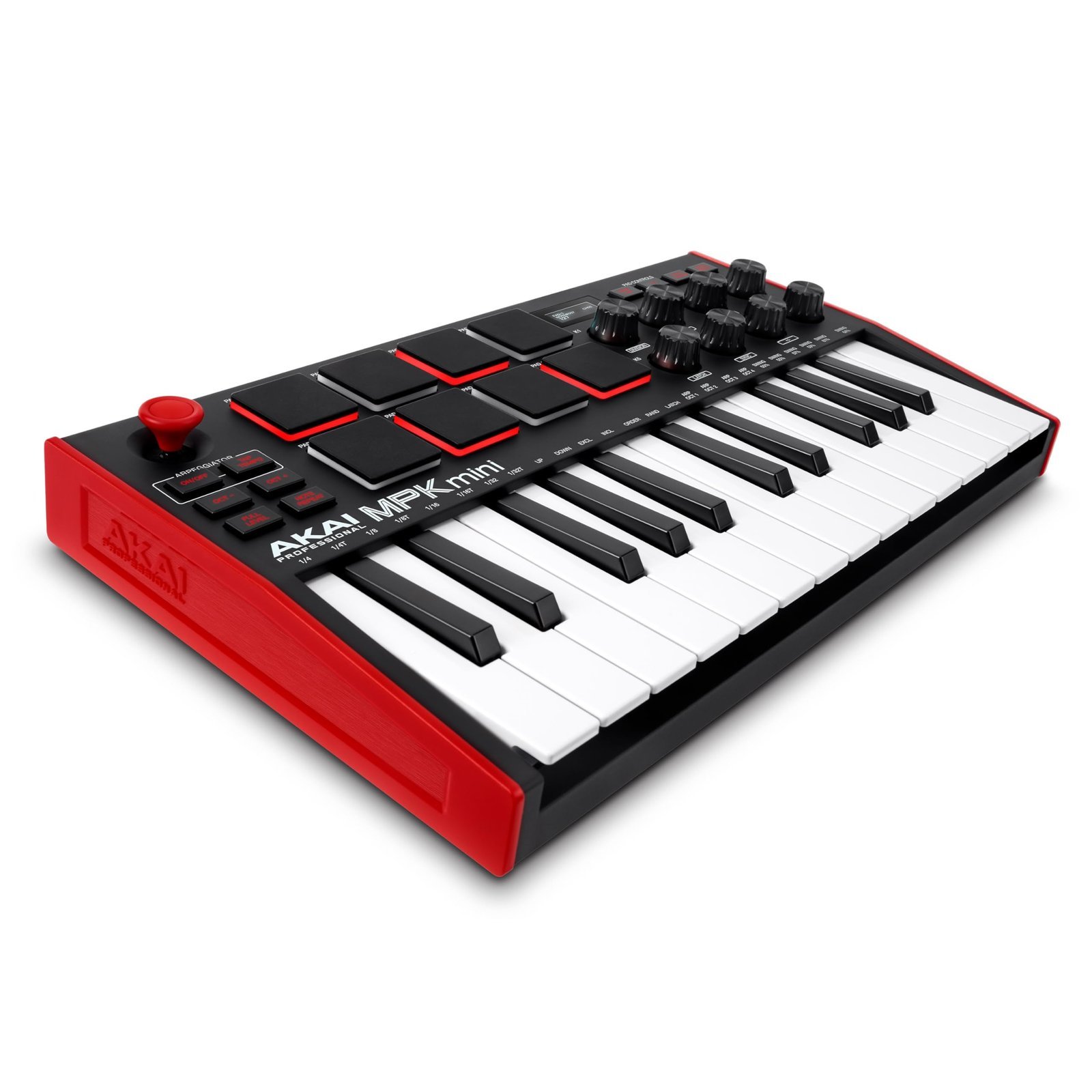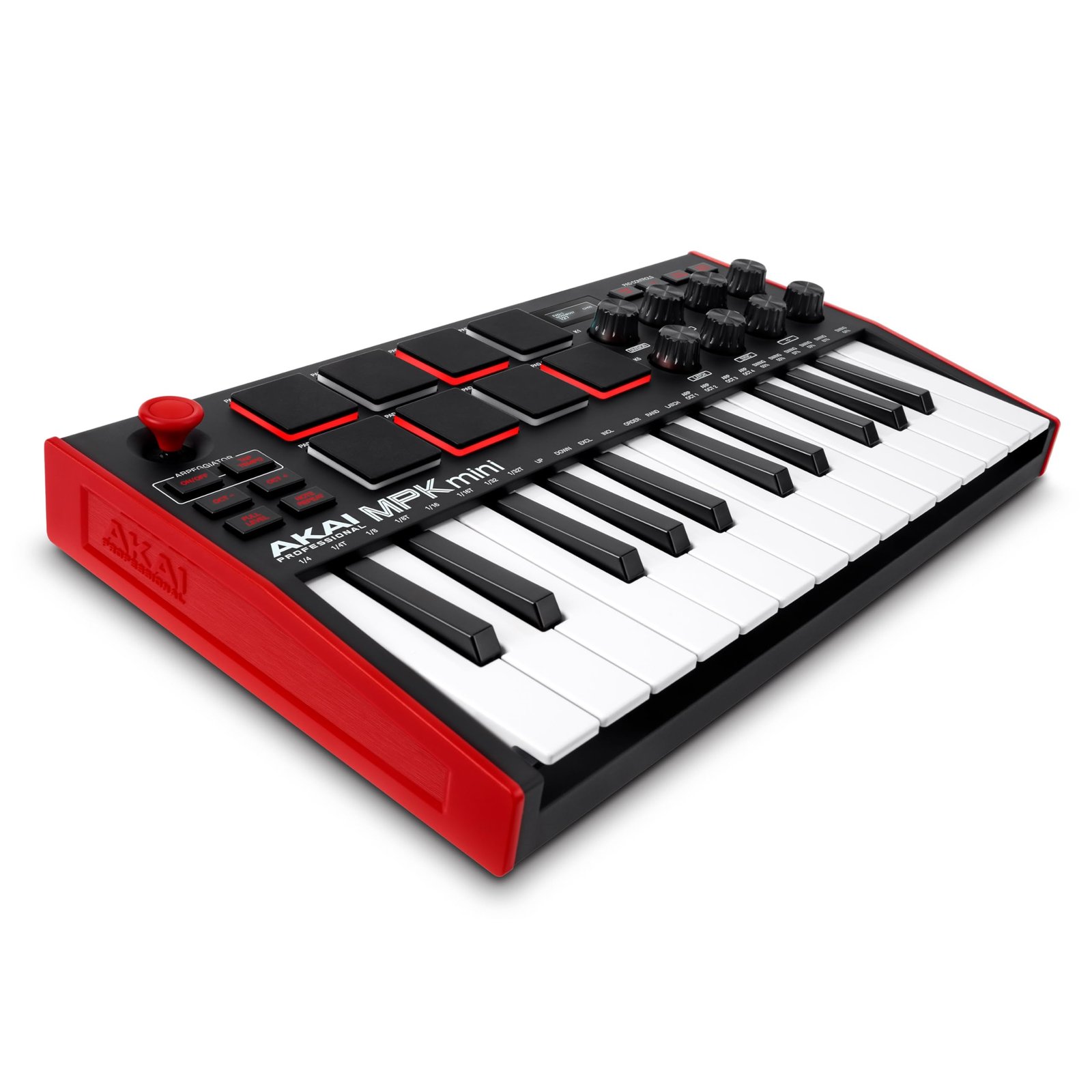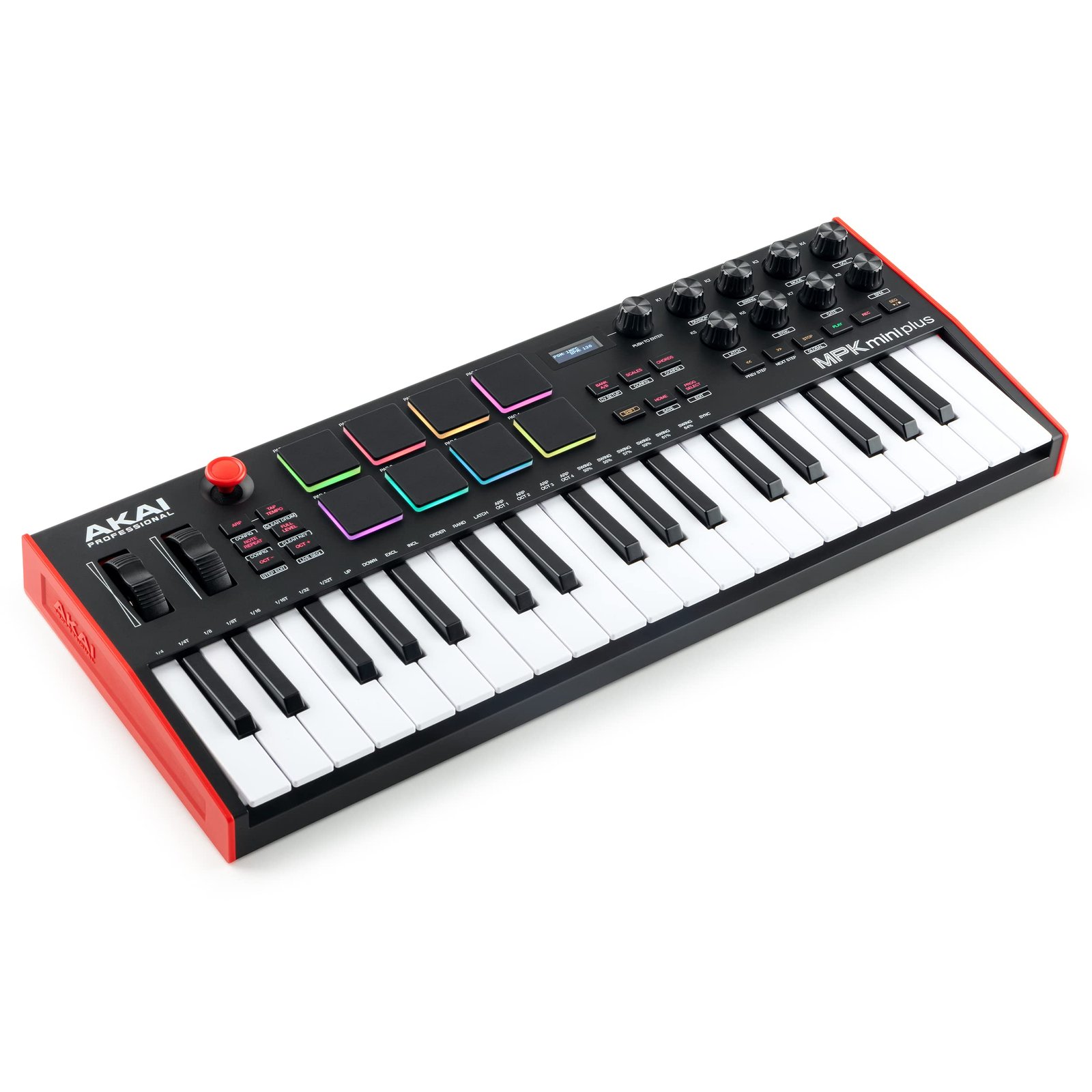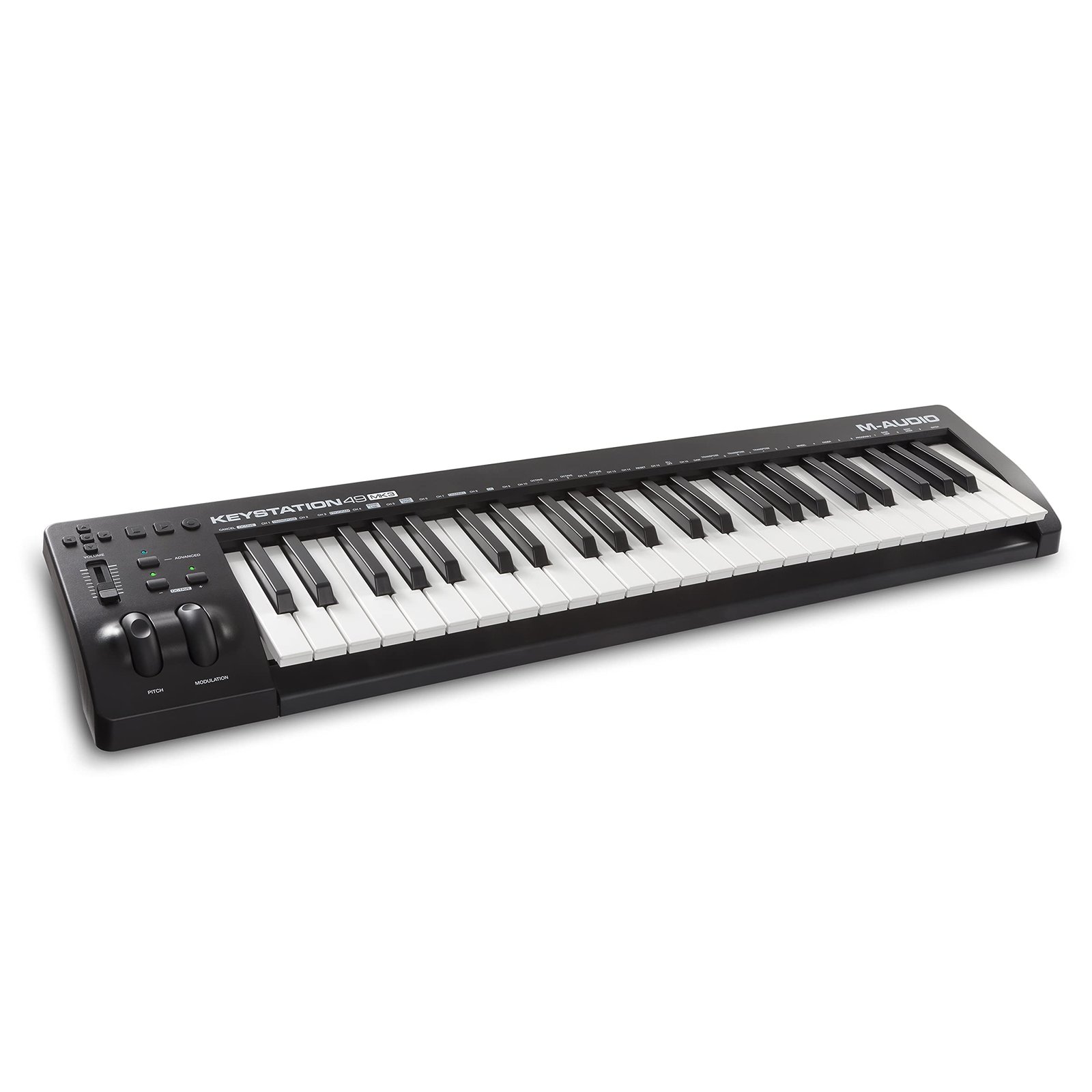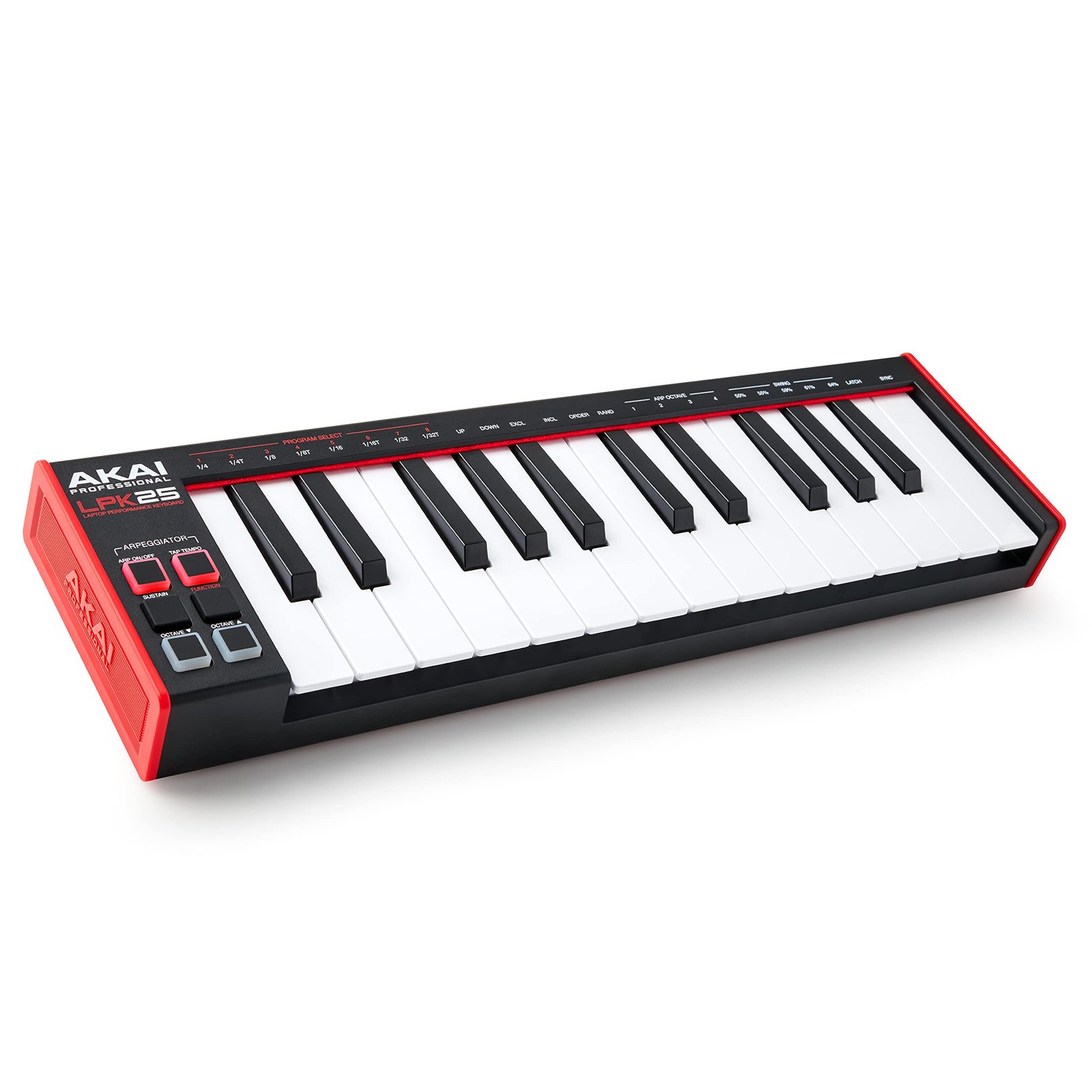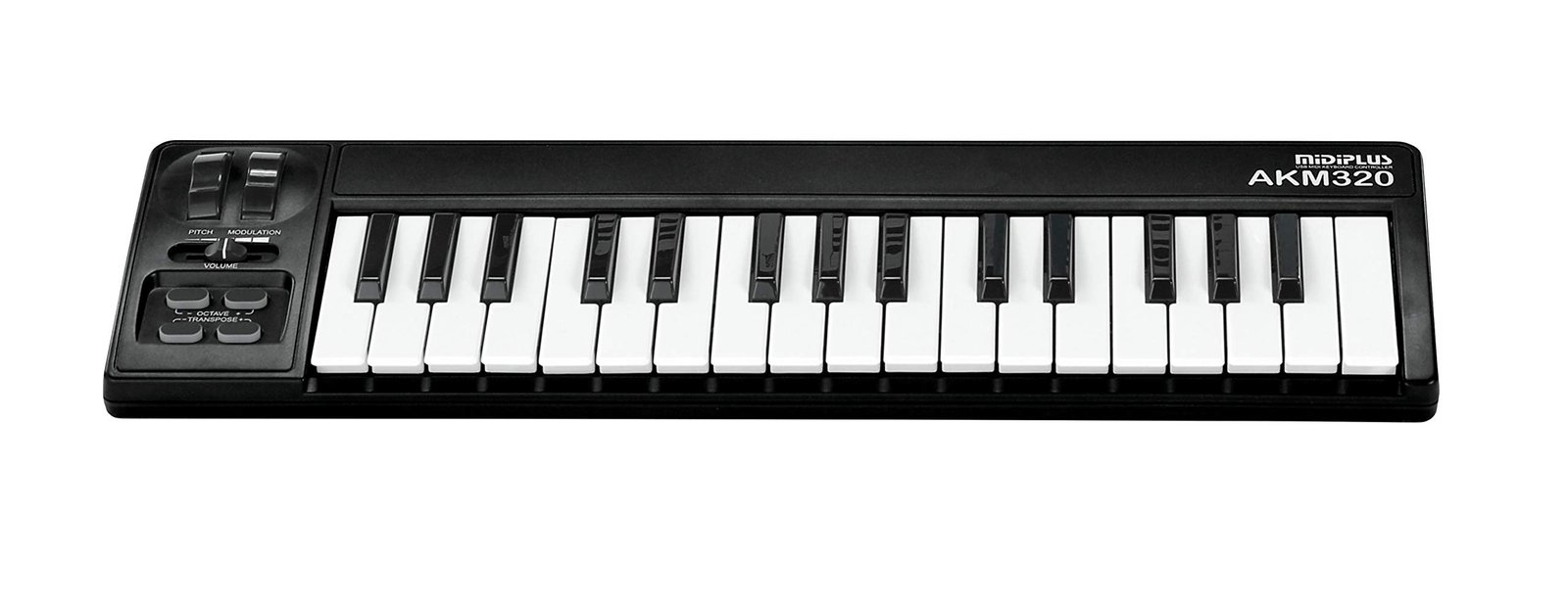Musicians and producers who want to create and control digital music need keyboard MIDI controllers.
These devices allow you to connect to your computer or other digital devices.
This offers the flexibility to craft complex soundscapes and intricate musical compositions.
Keyboard MIDI controllers come in various shapes and sizes, adapting to different needs and preferences.
From bedroom producers to professional musicians, MIDI controllers have become a staple in modern music production.
When considering which keyboard MIDI controller to purchase, you should think about factors like key count, connectivity options, and portability.
Do you need something compact to take on the road, or a full-sized keyboard for a dedicated studio setup? Also, look for additional features such as pads, knobs, and faders, which can give you more control over your music.
Choosing the right keyboard MIDI controller can enhance your workflow and elevate your music production process.
With a focus on your unique needs and preferences, you can find a controller that fits seamlessly into your creative routine.
Top Keyboard MIDI Controllers
If you’re on the lookout for a reliable Keyboard MIDI controller, you’re in the right place.
We’ve compiled a list of versatile options that cater to all your music production needs.
Dive into our selection and discover which might suit your creative workflow best.
AKAI MPK Mini MK3
Perfect for music producers on the move, this compact MIDI controller brings powerful music production tools right to your fingertips.
- Extremely portable and perfect for on-the-go music creation.
- Versatile control options with integrated software package.
- Ultra-responsive keys and pads for a great feel.
- Limited key count may feel restrictive.
- Learning curve with feature-rich capabilities.
- Setup requires some initial software installation.
If you’re looking for a MIDI controller that’s both compact and packed with features, the AKAI MPK Mini MK3 is worth considering.
It offers intuitive controls with its 4-way joystick, making it easy to manage pitch and modulation without missing a beat.
The 25 velocity-sensitive keys respond well to your touch, ensuring your music is captured effectively.
The AKAI MPK Mini MK3 boasts a sleek and portable design, but the 25 keys might feel a bit limiting for more seasoned pianists.
However, this doesn’t take away from its utility, especially with its 8 backlit pads that facilitate easy beat-making and sample-triggering.
The bundled software significantly enhances its value, providing the tools you need right out of the box.
This controller is a solid choice if you’re just starting out or need a reliable travel companion, offering robust performance in a neat, compact package.
AKAI MPK Mini Plus
A versatile and compact choice if you’re seeking a MIDI controller that offers both portability and extensive control.
- With 37 mini keys, it provides ample room for varied musical expressions.
- The included software bundle, like MPC Beats, broadens your creative possibilities.
- Versatile connectivity options, including USB and MIDI, ensure easy integration.
- Mini keys may not be ideal if you’re used to full-sized keys.
- Limited physical support for larger, complex setups.
- Some might find its many features a bit overwhelming at first.
The AKAI MPK Mini Plus is perfect for creating music on the go or in a small studio setup.
The compact design doesn’t skimp on features, with 37 keys that allow for dynamic play.
You’ll find it easy to connect to your DAW, thanks to options like USB and MIDI.
The included MPC Beats software is a major plus, offering a chance to explore a wide range of sounds, effects, and instruments.
The integration of 8 MPC pads means you can effortlessly create beats and rhythms, making it a versatile tool for any producer or beat maker.
While the mini keys provide a compact advantage, they may take some getting used to, especially if you prefer larger keys.
Despite this, the MPK Mini Plus remains a robust choice, providing ample creative avenues for you to explore.
With its portable size, you can easily take your music production with you wherever you go.
M-Audio Keystation 49 MK3
If you’re looking for an affordable and versatile MIDI controller, this might be the one for you.
- Responsive, velocity-sensitive keys make it easy to express yourself musically.
- Simple plug-and-play setup lets you start creating right away.
- Comes with a robust software suite that enhances your studio experience.
- Limited key range might feel restrictive for advanced compositions.
- Software issues can be a headache for some users.
- Lightweight design, while portable, may sacrifice durability.
The M-Audio Keystation 49 MK3 stands out with its ease of use.
Plugging it into your computer is straightforward—no need for a power supply or drivers.
This can be a big plus when you want to jump straight into your music sessions without hassle.
Designed with 49 full-size keys, this MIDI controller aims to capture every nuance of your playing.
The built-in pitch and modulation wheels are intuitive, adding another layer of expressiveness to your music.
While it’s not a piano, the feel is satisfying for most casual musicians.
The bundled software is a definite perk.
You get access to popular digital audio workstations (DAWs) and virtual instruments, which means you have plenty of tools at your disposal.
Whether you’re new to music production or looking to expand your setup, this device offers good value.
AKAI LPK25 MIDI Keyboard
This compact MIDI controller is perfect when you need portability without sacrificing performance.
- Extremely portable and lightweight design
- Responsive synth keys for dynamic music playing
- Plug-and-play functionality for easy setup
- Limited to 25 keys may not suit complex compositions
- Lack of extra controls like pads and knobs
- Minimalistic design might feel basic to advanced users
The AKAI LPK25 MIDI Keyboard is an ideal solution if you want to make music while on the go.
Its lightweight and compact form mean you can carry it easily in your backpack or laptop bag.
This makes it a good fit for musicians who travel a lot or have limited studio space.
Playing on the LPK25 is straightforward and satisfying.
The keys respond well to touch, and you can connect this keyboard to your Mac or PC without fuss.
It’s perfect for capturing inspiration as it strikes, anywhere and anytime.
Despite its strengths, the LPK25’s 25-key layout may feel limited if you’re into more complex arrangements.
Additionally, it lacks additional controls like knobs and pads, which might disappoint those looking for more versatility in their MIDI controller.
However, if simplicity and ease of use are what you value most, this could be the perfect match for your music creation needs.
Midiplus AKM320 MIDI Controller
The MIDIPLUS AKM320 is a practical choice if you’re seeking an affordable and compact MIDI controller that’s easy to use right out of the box.
- Compact and portable design.
- Plug-and-play simplicity.
- Budget-friendly with essential features.
- Limited to 32 keys.
- Keys may feel stiff initially.
- Lacks a sustain pedal.
This keyboard’s small size makes it perfect for musicians on the go.
With its USB connectivity, you can easily plug it into your computer to start playing without any hassle.
The included features, like pitch and modulation wheels, add a layer of functionality often reserved for more expensive models.
However, be aware of its limited range due to the 32 mini-keys, which might restrict more complex compositions.
The keys are known to be a bit stiff at first, but they tend to loosen up with use.
If the lack of a sustain pedal is a concern, keep that in mind before purchasing.
Buying Guide
When you’re looking for a keyboard MIDI controller, there are a couple of things you should keep an eye on.
First, consider the number of keys you need.
A full-size keyboard typically has 88 keys, but you might only need 25 or 49 for portability.
Key Features to Consider:
- Pads and Knobs: These are great for controlling virtual instruments and effects directly.
- Weighted Keys: Offer a more piano-like feel, which can be crucial if you’re used to playing acoustic pianos.
- Aftertouch: Allows you to control additional parameters like vibrato or filters by pressing harder on the keys.
- Connectivity: Make sure there are enough ports for what you need, whether that’s USB, MIDI in and out, or even Bluetooth for wireless use.
When it comes to build quality, you don’t want a flimsy piece of equipment.
Test out the feel and sturdiness if you can.
If sound matters to you, check if it has any onboard sounds or is strictly a controller.
Budget and Software: Keep in mind what your budget is.
Some controllers come bundled with software, which could be a huge plus if you’re starting out.
Make sure the software is compatible with your digital audio workstation (DAW).
Frequently Asked Questions
Choosing the right MIDI keyboard controller can be a bit of an adventure.
Whether you’re looking at compatibility without a computer, checking out wireless options, or diving into budget-friendly choices for newbies, there are plenty of factors to consider.
How do I choose the best MIDI keyboard controller for my needs?
Consider the number of keys, size, and portability.
Think about if you need pads, knobs, or sliders.
Evaluate your budget and the compatibility of the controller with your software and equipment.
Can you use a MIDI controller without a computer?
Yes, you can connect it directly to hardware synthesizers, drum machines, or sound modules.
Some models have USB host capabilities or MIDI outputs for such connections, allowing you to make music without a computer.
What features should I look for in a wireless MIDI keyboard controller?
Check for Bluetooth connectivity and the range it offers.
Look at battery life and charging options.
Investigate compatibility with devices and software, ensuring seamless integration into your existing setup.
Are there affordable MIDI controllers that work well for beginners?
There are plenty of budget-friendly MIDI controllers out there.
Look for models with basic features such as a decent number of keys, velocity sensitivity, and USB connectivity.
Brands like Akai, Novation, and Alesis offer great options for beginners.
How do I connect a MIDI keyboard controller to my setup?
Use a USB cable to connect the controller to your computer.
You may need to install drivers or software provided by the manufacturer.
For other setups, check for MIDI ports and necessary cables or adapters.
What are the benefits of using a MIDI controller with weighted keys?
Weighted keys offer a more realistic piano feel and provide better control over dynamics.
They enhance expressiveness and are especially beneficial for pianists transitioning to MIDI keyboards.
This is because they offer a similar tactile experience to an acoustic piano.

